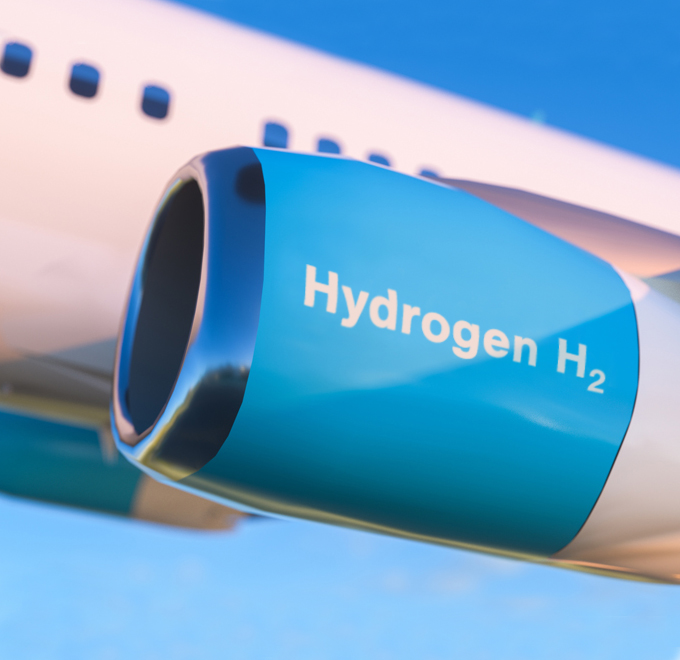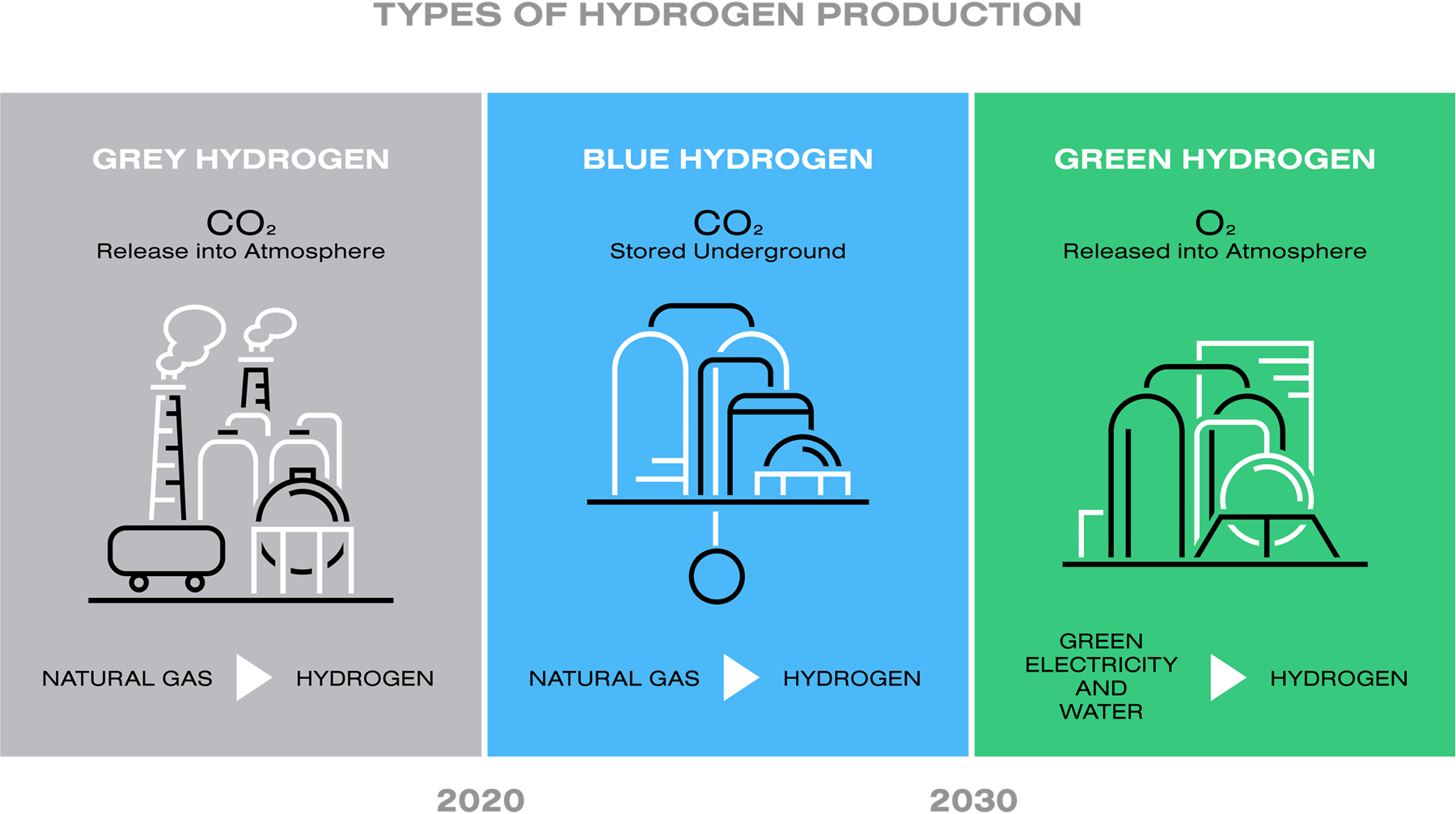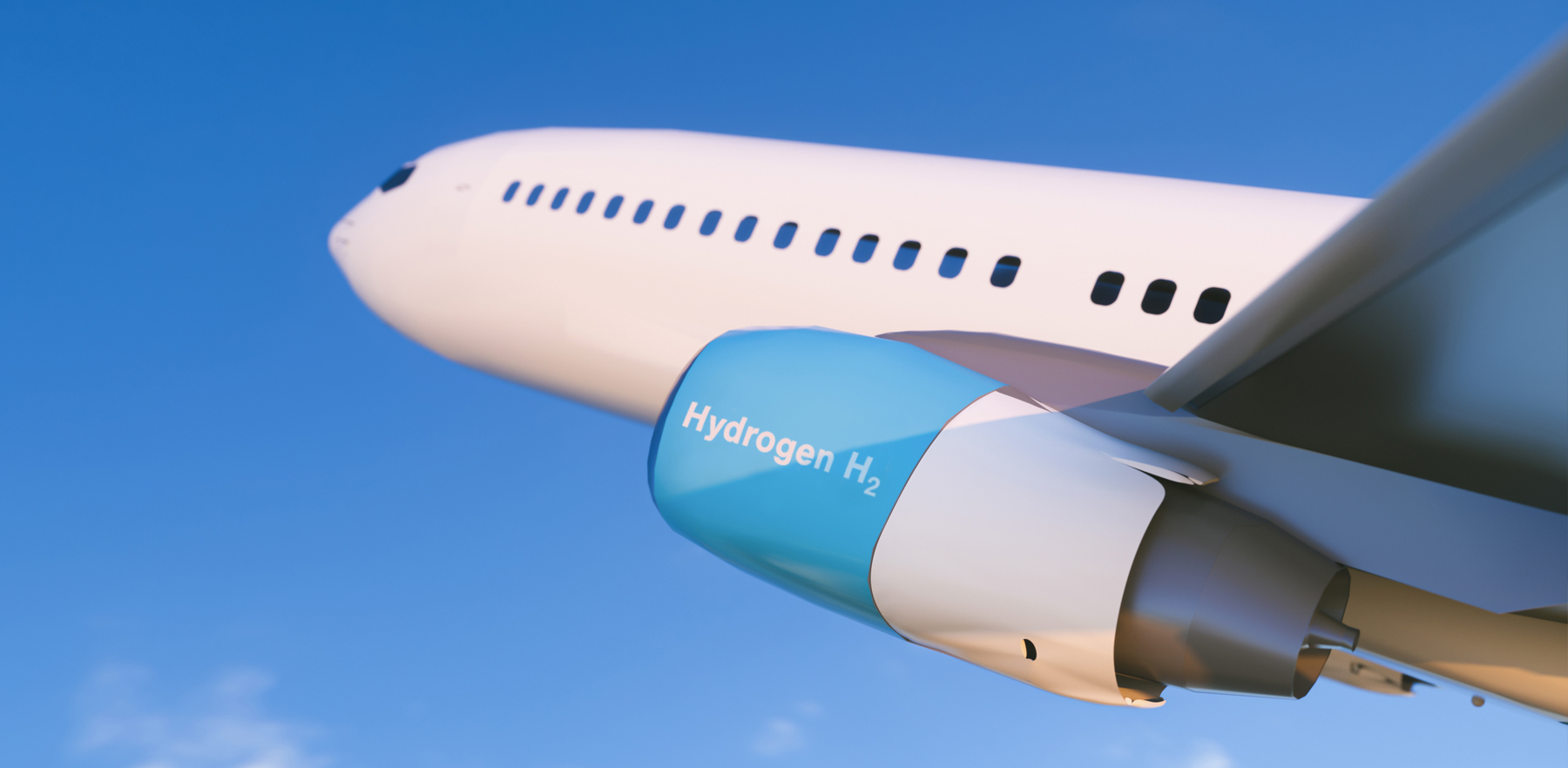Hydrogen: The Future Fuel of Aviation?

This is the first article in a series on Hydrogen Challenges in Aviation sector. Read Part 2
Hydrogen is being considered as a promising solution to help the aviation sector go greener. In a perfect scenario, aircraft would simply be fueled with hydrogen instead of the conventional Jet A fuel used today. The unfortunate reality is producing, storing, and transporting this next generation, emission-free fuel comes with its own set of challenges.
Types of Hydrogen Production
Hydrogen is the ninth most abundant chemical element found in the Universe, but it is not commonly found in a pure state. For hydrogen to be used as a fuel, it must be abstracted. The most common form of hydrogen production is called Grey Hydrogen. It is created from natural gas using steam methane reforming process. This form creates greenhouse gases, which are released into the atmosphere. To improve the carbon footprint of this process, a Carbon Capture and Storage (CCS) unit can be added to capture the CO2 emissions and store them underground. This process produces what is called Blue Hydrogen. The ultimate hydrogen production process that does not have harmful emissions is Green Hydrogen. Green Hydrogen uses renewable electricity, ideally coming from wind or solar sources, to create electrolysis of water.

Why Hydrogen Fuel?
It has been stated the aerospace industry is responsible for releasing over 900 million tons of carbon dioxide (CO2) emissions into the atmosphere every year1. With commitments made by more than 30 countries, including the European Union’s Green Deal, and various organizations like the International Civil Aviation Organization (ICAO) and Air Transport Action Group (ATAG), there is intense pressure being placed on the aviation sector to reduce CO2 by 50 percent between 2005 and 2050 and eventually to a net-zero carbon emissions by 2050. Hydrogen has nearly three times the energy content of gasoline (specific energy); and due to its natural abundancy and elimination of CO2 emissions if produced carbon-free, hydrogen fuel is being considered as a feasible alternative to conventional jet fuel.

Industry Challenges
Changes in aerospace require years of research and development and large financial commitments to ensure safety measures and regulation policies are met, especially when introducing new, disruptive technologies. Hydrogen fuel creates technological challenges to the whole infrastructure of aviation. There are many unknowns about hydrogen and how it will behave in the demanding environments of aerospace. Innovation, advanced technologies, and materials that can withstand the results of hydrogen’s complex properties, such as permeation, low lubricity, and low molecular weight, will be crucial.
Though the expectations and timeline to lower aerospace’s carbon emissions seems aggressive, with determination and collaboration, together we can do this!
1 https://www.fch.europa.eu/sites/default/files/FCH%20Docs/20200507_Hydrogen%20Powered%20Aviation%20report_FINAL%20web%20%28ID%208706035%29.pdf